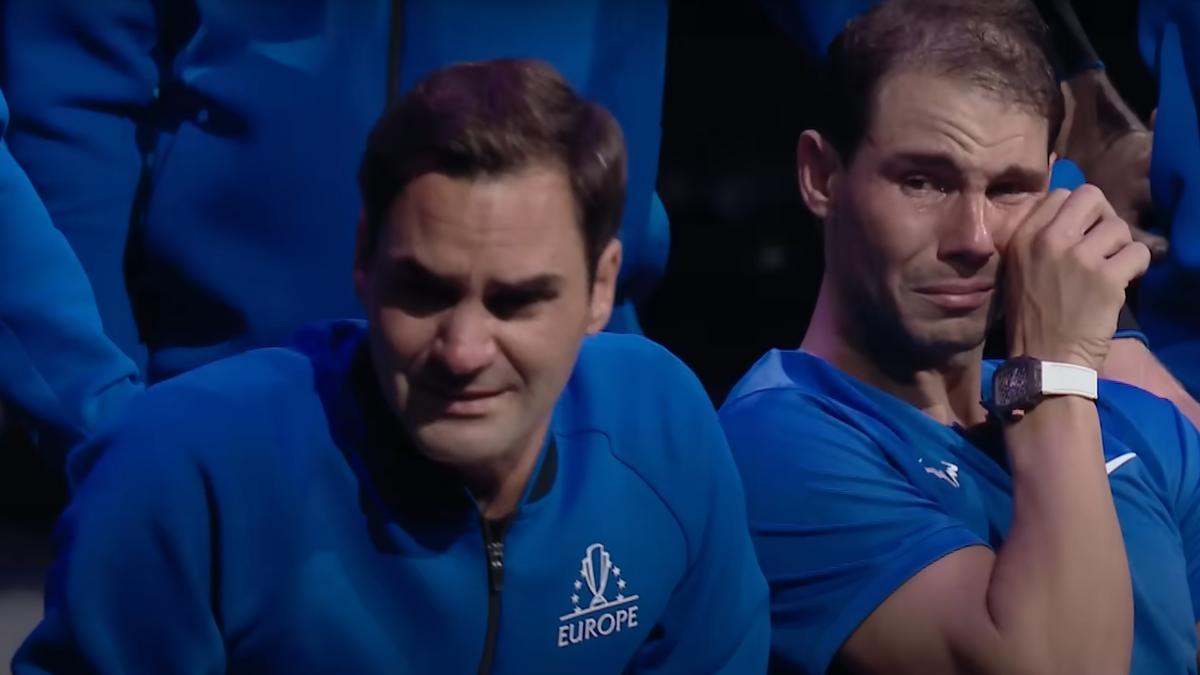
For millions of Roger Federer fans worldwide, the inevitable came to pass on September 15, 2022. The tennis legend penned an emotional letter confirming his retirement from the sport. “Tennis has treated me more generously than I ever would have dreamt, and now I must recognise when it is time to end my competitive career,” he wrote, marking the end of a 24-year-long illustrious career, adorned with 20 Major titles and more than 1,500 matches.
The documentary “Federer: Twelve Final Days” by filmmakers Asif Kapadia and Joe Sabia takes viewers through the last 12 days leading up to Federer’s final competitive match—playing doubles with his long-time rival and close friend Rafael Nadal during the Laver Cup at London’s O2 Arena. The concept is ambitious, aiming to delve into the mindset of a sporting legend preparing for his last court performance. However, the execution leaves much to be desired.
The outcome is somewhat rudimentary, failing to evoke the anticipation that one might expect for such a significant occasion. The documentary shows Federer mostly attempting to keep his emotions in check, with only a few light-hearted yet nervous moments that offer a glimpse into his fear of retirement. These fleeting moments fall short of providing a comprehensive understanding of what is going on inside Federer’s mind.
The initial segments of the documentary focus primarily on the harrowing impact of multiple knee surgeries that plagued Federer towards the end of his career. Unfortunately, the narrative misses an opportunity to delve deeper into the life and career of one of tennis’s greatest figures. Kapadia, known for his expertise in documentary filmmaking, does not go beyond the basic idea of documenting Federer’s final days, leaving viewers wanting more detailed insights.
“Federer: Twelve Final Days” begins with a montage of Federer’s incredible on-court moments—the jaw-dropping tweener shots and the exquisite passing shots that have wowed fans globally. It charts his journey from an aggressive youngster to a polished and well-rounded player. Yet, the documentary falls short of fulfilling the viewer’s curiosity about how Federer mastered these iconic shots that cemented his reputation as a tennis artist.
The film is hardly revelatory; it fails to explore the reasons behind Federer’s mystical aura. It does not probe into how his legendary peers and the continually intensifying competition in men’s tennis challenged his invincibility. Neither does it explore his indomitable spirit that spurred him to revamp his game and make an extraordinary comeback, eventually becoming the oldest-ever world No.
. 1.
Nevertheless, Federer’s thoughts on the game remain compelling, even amidst the documentary’s less engaging parts. A particularly interesting moment is when he likens tennis to chess, emphasizing the psychological battle between two players, and expressing his enjoyment in outsmarting his opponents.
As the narrative moves to the Laver Cup, Federer’s role as an ambassador for the sport shines through, with peers and former tennis greats praising his immense talent. The documentary captures a poignant moment in the pre-tournament press conference, where Federer speaks about his first tennis idol, Bjorn Borg. Contrary to popular belief, Federer did not see himself as Pete Sampras’s successor but instead admired Borg for his skill and off-field charisma.
The most enriching parts of the documentary involve Federer’s interactions with Novak Djokovic and Rafael Nadal. Djokovic is portrayed as the “party crasher,” the third wheel in Federer’s story, who had to carve out his space in a community that idolized Federer. Federer openly admits that he did not give Djokovic the respect he deserved in the earlier stages of the Serbian’s career.
In contrast, Federer’s camaraderie with Nadal stands out despite their fierce rivalry, illustrating a unique friendship. This also explains why Federer chose to inform Nadal about his decision to retire 10 days before making it public, showcasing the deep mutual respect and affection between them. Their competitive dynamic not only elevated tennis but also propelled both to greater heights.
The documentary concludes on an emotional note, capturing Federer breaking down multiple times, a fitting yet not overly sentimental ending. For those who have closely followed Federer’s career, seeing the pivotal moments of his final match, the collective support from his peers, and his heartfelt farewell to fans and friends is overwhelming.
The closing moments of “Federer: Twelve Final Days” offer a nostalgic experience for Federer enthusiasts. They serve as a reminder of nights spent waking at odd hours to witness his unparalleled dominance, marvel at his devastating forehand, or his pinpoint first serve. Most crucially, it recalls the cherished announcements: “Game, set, and match, Roger Federer!”
“Federer: Twelve Final Days” is available for streaming on Amazon Prime Video, an essential watch for those who wish to relive the twilight moments of a sporting legend’s career.












